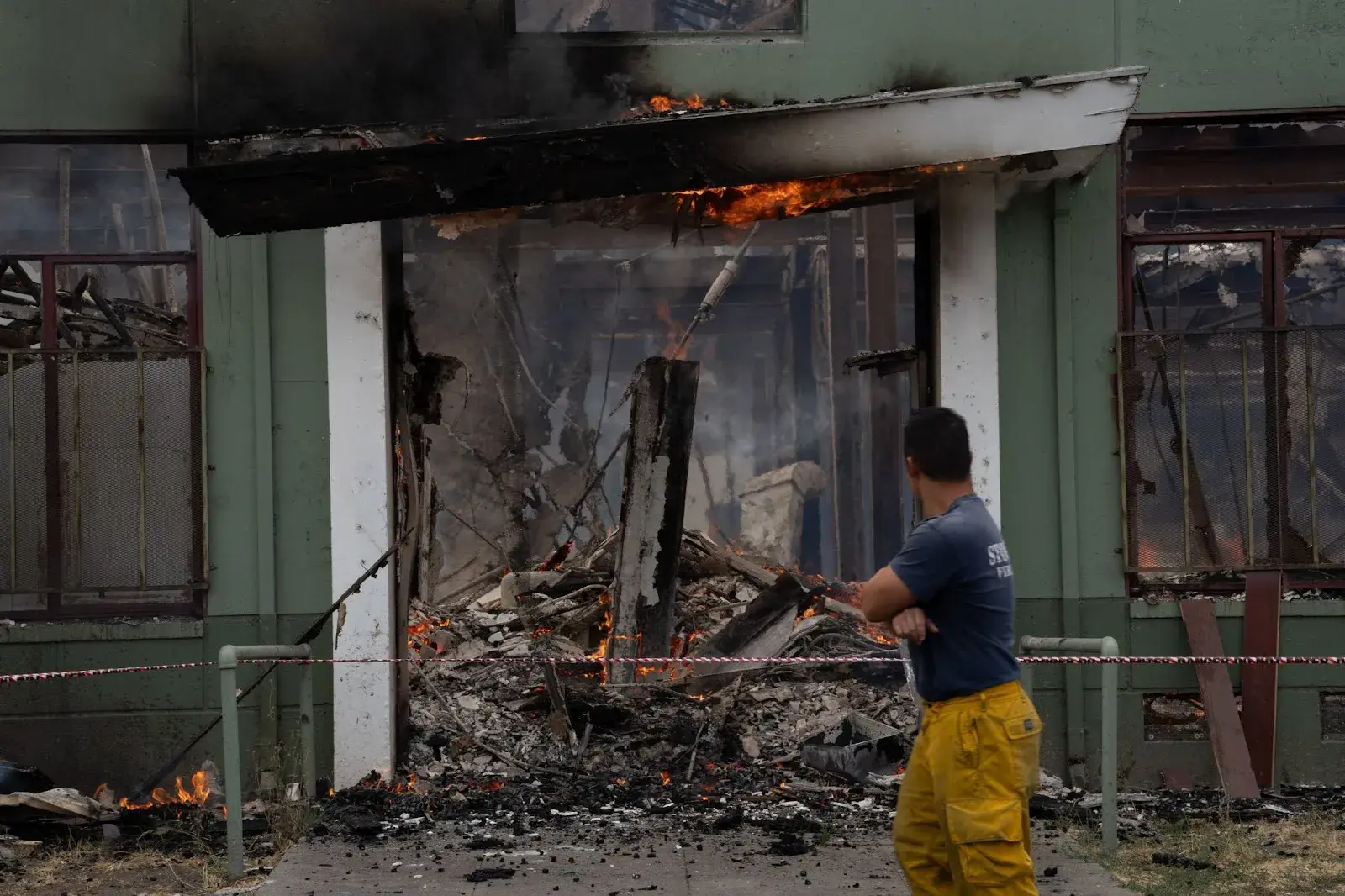As Stockton faces sweltering summer temperatures, unhoused residents are left with little choice but to endure the relentless heat. With temperatures regularly exceeding 100 degrees, those without shelter are particularly vulnerable, facing the challenge of finding shade and water while carrying their belongings across the city. For many, the oppressive heat is life-threatening, and their only option is to survive however they can.
Michael Lopez, a 53-year-old Stockton native who has been homeless for over a decade, described the difficulty of living on the streets during extreme heat. “When it’s cold, you can bundle up, you can build a fire. But when it’s hot, what can you do? You can’t do anything but endure it,” Lopez explained, highlighting the limited options available to those without shelter.
Lopez and many others are facing increased difficulties as the city of Stockton advances plans to limit camping in public spaces such as parks, where unhoused individuals often rely on access to bathrooms and drinking fountains. This summer, Stockton police have cleared 76 encampments—seven more than last year—following a U.S. Supreme Court ruling in June that granted local governments more authority to remove homeless encampments. California Governor Gavin Newsom has urged local agencies to follow through on the ruling, leaving the unhoused community in an even more precarious position.
With fewer places to go, some unhoused individuals are now seeking shelter under freeway overpasses, where they can at least escape direct sunlight. Jessica Velez, founder of Red Rabbit Advocacy Group, a nonprofit organization in Stockton that works with the homeless, expressed concern over the shrinking number of safe places for people to find relief from the heat. “If you continue to minimize locations for people to be, to beat the heat, they’re going to end up in front of stores, in front of your house, in your yard. There’s nowhere else for them to go,” she said.
While Stockton opens cooling centers during excessive heat warnings, getting to these locations can be difficult for unhoused individuals who must carry their belongings with them. For Rose Beasley, who has lived on the streets in Stockton for much of the past 20 years, the centers are often not worth the effort. “You’re better off just finding a big five-gallon jug of water and dousing yourself down,” Beasley explained. Her experience of surviving triple-digit temperatures almost cost her life.
Beasley recalls one summer when the heat became unbearable. In her tent, she became so weak from dehydration and heat exhaustion that she could barely move. “It was like breathing in air out of an oven,” she said, describing how she felt trapped, unable to find relief. Her cries of pain eventually prompted a neighbor to call for help, leading to her hospitalization and emergency heart surgery.
Beasley’s experience is not unique, but the lack of data on heat-related deaths among the homeless population in San Joaquin County makes it difficult to understand the full extent of the crisis. County officials acknowledge that heat exposure can exacerbate underlying health conditions, but attributing deaths directly to heat is complex.
Organizations like Community Medical Centers (CMC) in Stockton are on the frontlines, providing medical care to the unhoused, often in dangerous conditions. David Lopez, director of environmental safety at CMC, said their mobile teams drive around the city to offer resources and health services, but working in the intense heat puts both staff and patients at risk. Some days, the teams are even called back from the field to protect their safety.
Dr. Lauren Brown-Berchtold, who leads a family medicine residency program at San Joaquin General Hospital, echoed these concerns. Her team treats unhoused patients for a variety of heat-related issues, including dehydration and kidney failure. “The complexities of medical care for this population, particularly with heat waves like this, that are becoming more and more frequent, are problematic,” she said.
Beasley, now housed thanks to the efforts of Velez and the Red Rabbit Advocacy Group, volunteers her time helping other unhoused individuals access the resources they need. She connects them with services and shares her story of survival in the hopes of inspiring others to seek help. “You just gotta take it one day at a time,” Beasley said. “And whatever you learn, try to put it forward and help someone else.”
Velez’s vision for long-term solutions goes beyond temporary relief. She advocates for the creation of a “transitional village” in Stockton, a legal campsite where unhoused individuals can live in tents, keep their belongings and pets, and have access to social services. The idea, inspired by a similar initiative in Denver, Colorado, would provide a safe space for people to stay while they work toward transitioning into permanent housing.
There is some hope on the horizon, as California lawmakers recently passed SB 1395, a bill designed to streamline the process of building interim housing for the homeless. This legislation could pave the way for projects like Velez’s transitional village.
In October, Velez plans to host a town hall meeting where community members can meet and listen to their unhoused neighbors. The event will focus on the experiences of Stockton’s homeless population and explore potential solutions, including changes to local land-use laws that could help address the crisis. “I encourage people to just reach out,” Velez said. “Come get to know some people, because you’re gonna fall in love.”
As Stockton continues to grapple with the challenges posed by extreme heat and homelessness, advocates like Velez and Beasley are working to ensure that the city’s most vulnerable residents are not forgotten. With the right support and understanding from the community, they hope to create lasting change for those who have no choice but to endure the heat.

